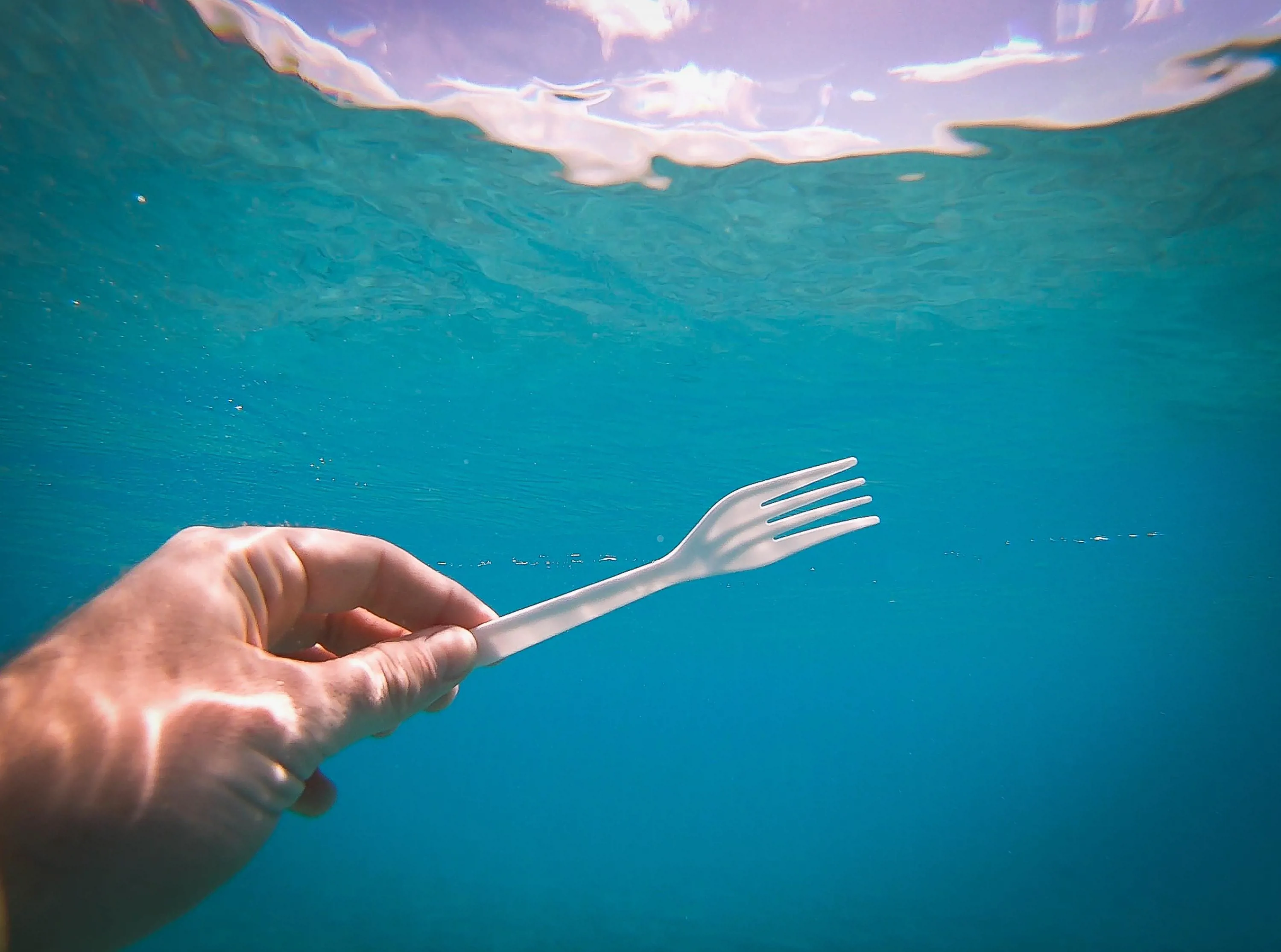Ever since Blue Planet II brought us face to face with the damage that plastic waste is doing to our planet, we have been waging war on plastic pollution. The clips of an albatross feeding its chicks a fatal diet of plastic and of a turtle with a plastic straw lodged up its nostril struck a chord with the public.
People became far more conscious about plastic use and the so-called ‘Attenborough effect’ is still evident four years later.
Plastic is driving the climate crisis
Made almost entirely from fossil fuels, plastic is driving the climate crisis, creating global waste mountains and clogging up our oceans. It’s estimated that by 2050 there will be more plastic in our ocean than fish.
And single-use plastic is one of the worst kinds, useful to us for only a few minutes, but destined to pollute our planet for centuries. Every single piece of plastic we’ve ever made is still with us in some form because plastic never decomposes – it simply breaks down into smaller and smaller pieces.
The #stopsucking campaign that encouraged people to refuse plastic straws was a good starting point, but banning plastic straws won’t save the ocean. We are still producing way too much plastic waste.
So, what’s next for single-use plastics?
A circular economy
We make products, use them and then chuck them away, making a mess of our planet in the process. We need to replace this ‘take, make, waste’ system with a new approach: a circular economy. In this system, materials are valued, not wasted.
Items flow around a ‘closed loop system', instead of being used once and then discarded. If something breaks, it is either mended or taken apart to be turned into other products. Nothing becomes waste or pollution.
Everyone involved in the process – governments, plastic and packaging companies, consumers, industry associations, NGOs and the waste-management industry – will need to work together to make the transition to this circular economy model.
Businesses reducing and recycling their plastic waste Remember the #PacketInWalkers campaign where protesters posted empty crisp packets back to Walkers, forcing the company to set up a recycling scheme?
A growing number of people won’t stand for shoddy practices anymore, so it’s good for business, as well as for the environment when companies tackle their plastic waste.
Improve your company’s recycling rate
First Mile makes it easy for you to improve your company’s recycling rate. Just sign up to our simple and cost-effective single-use plastics recycling service. Or, for one-off orders, check out our award-winning RecycleBox. Fill the box with anything that’s tricky to recycle and post it back to us. We’ll do the rest.
We can even recycle soft and flexible plastics, such as carrier bags, food pouches and bubble wrap, which can’t go into the usual mixed recycling. Choose our dedicated recycling service and let us transform your unwanted plastic into new products.
And if you want to know exactly what your company is wasting, we can sort your rubbish into different types of material and report back to you. That way you can understand exactly which materials you’re wasting. Get in touch with us to find out more about this audit service.
Innovations
People are coming up with lots of creative new ways to ‘upcycle’ some of the plastic waste we already have. Instead of going to landfill, plastic is being turned into flower pots, eco-bricks, furniture and even roads.
Budding entrepreneurs are coming up with alternatives to plastic that are made from renewable, rather than finite, resources – such as bioplastics, which are made from vegetable fats and oils, corn starch, straw, woodchips, sawdust or recycled food waste.
Paper is also often cited as an alternative. However, these swaps bring their own problems and it’s debatable whether they are actually any better for the environment than plastic.
As the public turns against plastic, plastics companies are increasingly turning to chemical recycling as an alternative to the conventional recycling of plastic. This process turns plastics back into their original materials so that they can be remade into high-quality resins.
Whether this can provide a viable solution to plastic waste is arguable, but it shows the determination to come up with a solution.
Incredibly, there is even talk of super-enzymes and mushrooms that eat plastic. And, recently, scientists discovered bacteria in a cow’s stomach that can break down plastics.
The plastic pollution crisis
However, technology alone cannot solve the plastic pollution crisis. The world produces 380 million tonnes of plastic waste every year, much of it dumped into the ocean. We need to stop.
The good news is that thanks to public pressure, governments and businesses are starting to take action. And as individuals, we have the power to make small changes in our lives that can add up to big changes over time.
So next time you bring your own shopping bag, carry a reusable water bottle or say no to disposable straws or cutlery, remind yourself that you are making a positive difference in the fight against plastic pollution. Who knows, maybe your actions will inspire someone else?



